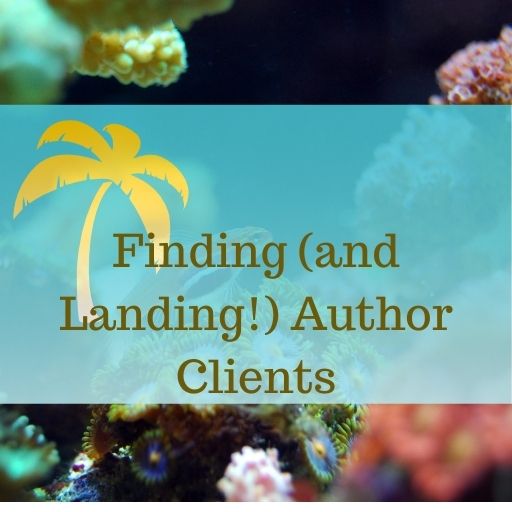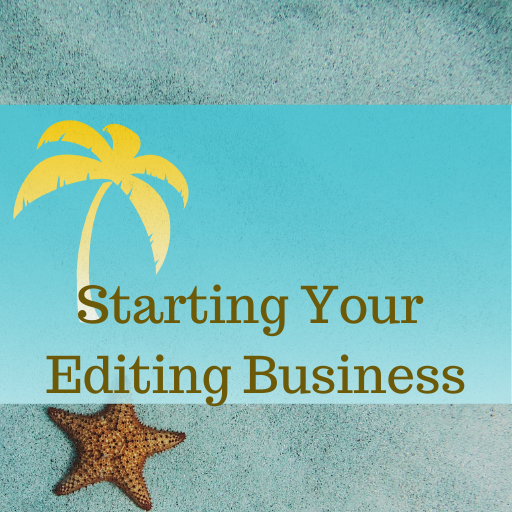Identifying Your Potential Clients
Once you’ve gotten some experience and are ready to find clients, you need to think about identifying your potential clients. Who is your audience of potential clients? It can’t be everyone who needs an editor because there is no way to find “everyone.” But there is a way to find, say, romance novelists. You can locate them on Twitter and Facebook, through the Romance Writers of America organization and so on.
Sometimes it helps to think about what your purpose as an editor is. Personally, I like to help women tell their stories. When I reflect on this, I realize I care about the kinds of stories they’re trying to tell. I want to help them tell stories about their own lives, or from their own imaginations, so that suggests memoir and fiction.
I’m not interested in helping a woman tell someone else’s story (biography or history), no matter how noble a cause that may be.
So I’m looking for women who are writing memoirs and fiction. And I especially like to work with women writers who are having trouble telling their stories. I don’t want to work with writers who are blocked, or who are struggling with serious mental or emotional problems that are getting in their way. I’m simply not equipped to deal with these issues.
Rather, I want to work with writers who are doubting themselves or don’t yet have the skillset to successfully convey their vision. I have the ability and knowledge to help these people. One main way I do this is by helping writers figure out what the story is and to dig deep to get it out. In other words, I help them learn craft.
Additionally, I’m not interested in working with people who treat writing as a hobby. I want to work with serious students of writing. Therefore my audience is professional women committed to learning craft to tell their stories.
You might reach entirely different conclusions and that’s fine and wonderful! I’m just explaining how this process worked for me.
I recognized that there were a number of women I knew who, like me, had had success as nonfiction writers, but wanted to spend more time working on their fiction. However, the skills of nonfiction and fiction are different, and professional writers can struggle with the transition. So I became a guide for helping women shift from writing nonfiction to writing fiction or creative nonfiction.
Now, this may seem like a very narrow group, but that’s a good thing! In a minute, I’ll talk more about the importance of specialization and finding your niche(s). But for now just realize that having a narrow potential audience/clientele is not a problem but an asset. The more you can pinpoint exactly who your ideal client is, the easier it is to find her and let her know what your fees are for helping her solve her problem.
I know exactly where to find the people I’ve defined as my ideal client type. I’m already Facebook friends with them. I’m in the same writers’ groups as they are. I go to the same conferences. Mostly I simply let people know that this is the work I do and they come find me (more on networking and referrals in a bit).
Identifying Your Potential Clients
Now, let’s see about applying this process to someone who isn’t me.
Suppose your purpose is to help emerging writers find their voices. You think about this for a while and you decide that you love working with teens, and so you would like to start coaching teen writers at the library. You know exactly where to find the library and also you have a good sense of where you might find teen writers—at the local high school. So, you could reach out to them and tell them about your services.
But before you do that, the question you must ask yourself is, “Can this clientele pay a fair market value for my services?” Because if the answer is no, you don’t have a business, you have a hobby. Or, possibly a nonprofit organization funded by arts grants but that is outside my realm of expertise so let’s just assume you’re as profit-motivated as I am.
Teens writing novels don’t have any money to spend on your services. Their parents might but it is doubtful that they would dig very deep or very often. So while this could be a nice gig you do on the side because you love to see thirteen-year-olds realize they have potential, you’ll have to revisit your purpose insofar as profit motive is concerned.
When identifying your potential clients, ask yourself these questions: What kinds of emerging writers could afford your services? Who else might want to learn to tell stories? What about retirees interested in the legacy they are leaving? “Legacy” isn’t just about their estate. Maybe they want to share what they know or give their children a better sense of what their lives were like. Retirees are much more likely to have disposable income and be willing to spend it on something as important to them as a story they want to leave behind. Can you think of where you might find these potential clients? The senior center, the Osher Institute, next door?
Join the Club!
New to story editing? Begin at the beginning.





